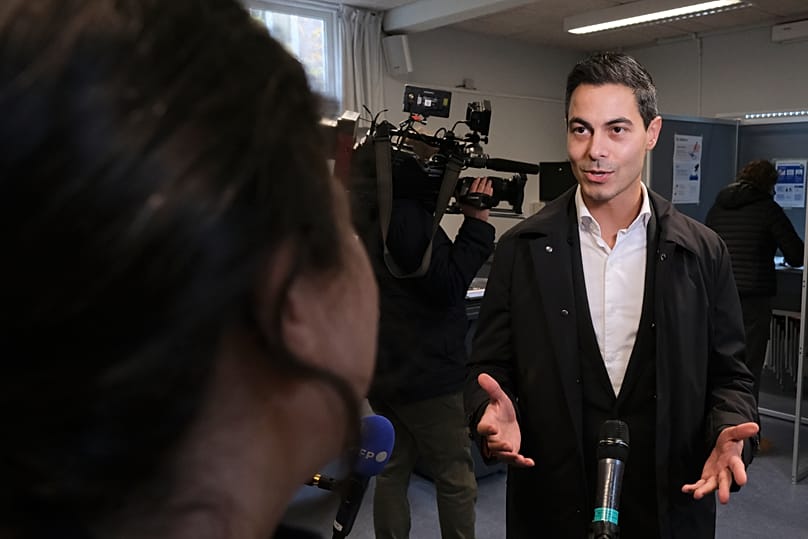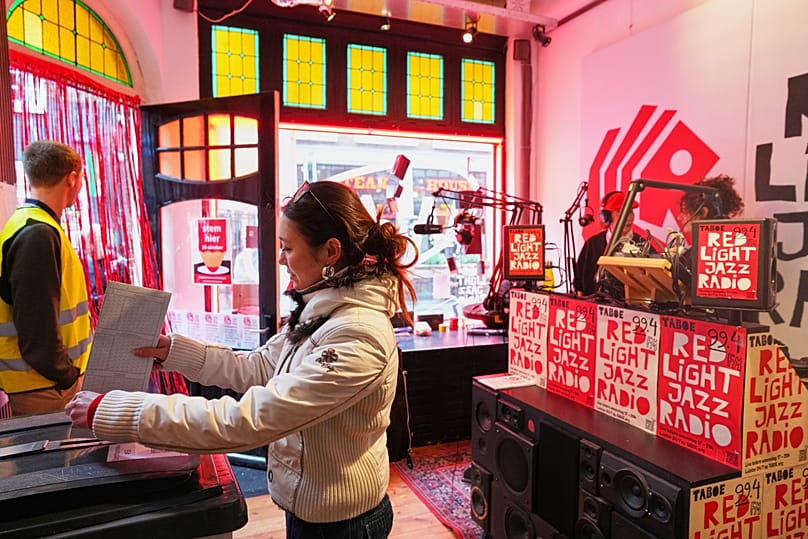Preliminary results show a difference of just 2,000 votes between the centrist liberal D66 and far-right PVV, indicating 26 seats each in an extremely tight race.
With 98.6% of the votes counted, the centrist liberal party D66 and the far-right PVV are both projected to be the biggest winners in Wednesday's parliamentary elections in the Netherlands.
At 5 am, the difference between the two parties was just over 2,000 votes, indicating they are set to win 26 seats each in an extremely tight race.
An earlier Ipsos I&O exit poll indicated that D66 held a tight lead with 27 seats in the 150-seat House of Representatives, and 25 seats for PVV.
In the Dutch system, where no party is likely to get an absolute majority, a coalition would need 76 seats to form a government.
It is a significant shift from the 2023 election, which saw the PVV win a landslide victory with 37 seats, followed by the Green Left Labour Party (GL-PvdA) and the conservative People's Party for Freedom and Democracy (VVD) with 25 and 20 seats, respectively.
VVD is projected to receive 22 seats, while GL-PvdA is projected to receive a lower-than-expected 20 seats.
The loss of five seats dealt a significant blow to the left-leaning GL-PvdA, whose leader Frans Timmermans hoped to become the biggest party.
In the weeks leading up to election day, opinion polls showed the party of the former European Commission vice president in the top three, alongside PVV and the centrist Christian democratic CDA party.
Timmermans bows out
Shortly after the initial exit poll, Timmermans stepped down as party leader. “It is time for me to take a step back and give the leadership ... to the next generation,” he said.
While the Ipsos exit poll is a preliminary indication, their data in past elections has been highly reliable. In 2023, Ipsos signalled 35 seats for PVV, a deviation of just 1.2%.
For other parties, the most significant deviation from the final results was just 0.5%.
That means the final results differ by between one and three seats and rarely ever more. With just two seats separating D66 and PVV, the final outcome remains open.
Ipsos projected voter turnout slightly higher than in 2023. According to the latest numbers, the turnout stood at 87.4%, up from 77.7% in 2023.
In the final stretch of the election campaign, the D66, led by Rob Jetten, saw a sudden jump in the opinion polls, reaching the top just days before election day after lagging behind PVV, GL-PvdA and CDA in initial projections.
It also marks a significant comeback for D66, which suffered major losses, receiving only nine seats in 2023, down from 24 in 2021.
Newcomer Henri Bontenbal, leader of the CDA party, has become a popular contender for prime minister, considered a more moderate bridge between the left and the right. His party is set to receive 18 seats.
His agenda of “decency and respect” and "getting back to work" - in reference to the standstill after the previous administration collapsed in June over a conflict on migration only a year after it took office - appeared to resonate with voters.
PVV's Wilders once again campaigned hard to curb illegal immigration, which led to his victory in 2023. The much-disputed issue also led to the collapse of the outgoing government, when Wilders and his party left the four-party coalition.
Infighting within the last coalition led to criticism that the Netherlands, long a prominent voice within the European Union, was sometimes seen as not fully engaging with the continent as it had under long-time leader Mark Rutte, who is now NATO's secretary general.
Wednesday night's results signal a difficult path ahead in the coalition talks. While Wilders has lost seats compared to the 2023 election, his party will maintain a prominent role.
Other smaller parties on the far right also saw significant gains with JA21 rising from just one to nine seats in the exit poll, and Forum for Democracy (FvD) set to receive seven, up from three.
But the prospect of the far right's role in government remains unclear.
D66, GL-PvdA and CDA have all ruled out governing with the PVV, arguing that Wilders' decision to torpedo the outgoing coalition signalled that he is an unreliable partner.
Wilders rejects arguments that he had failed to deliver on his 2023 campaign pledges despite being the largest party in parliament, blaming other parties for stymying his plans.













